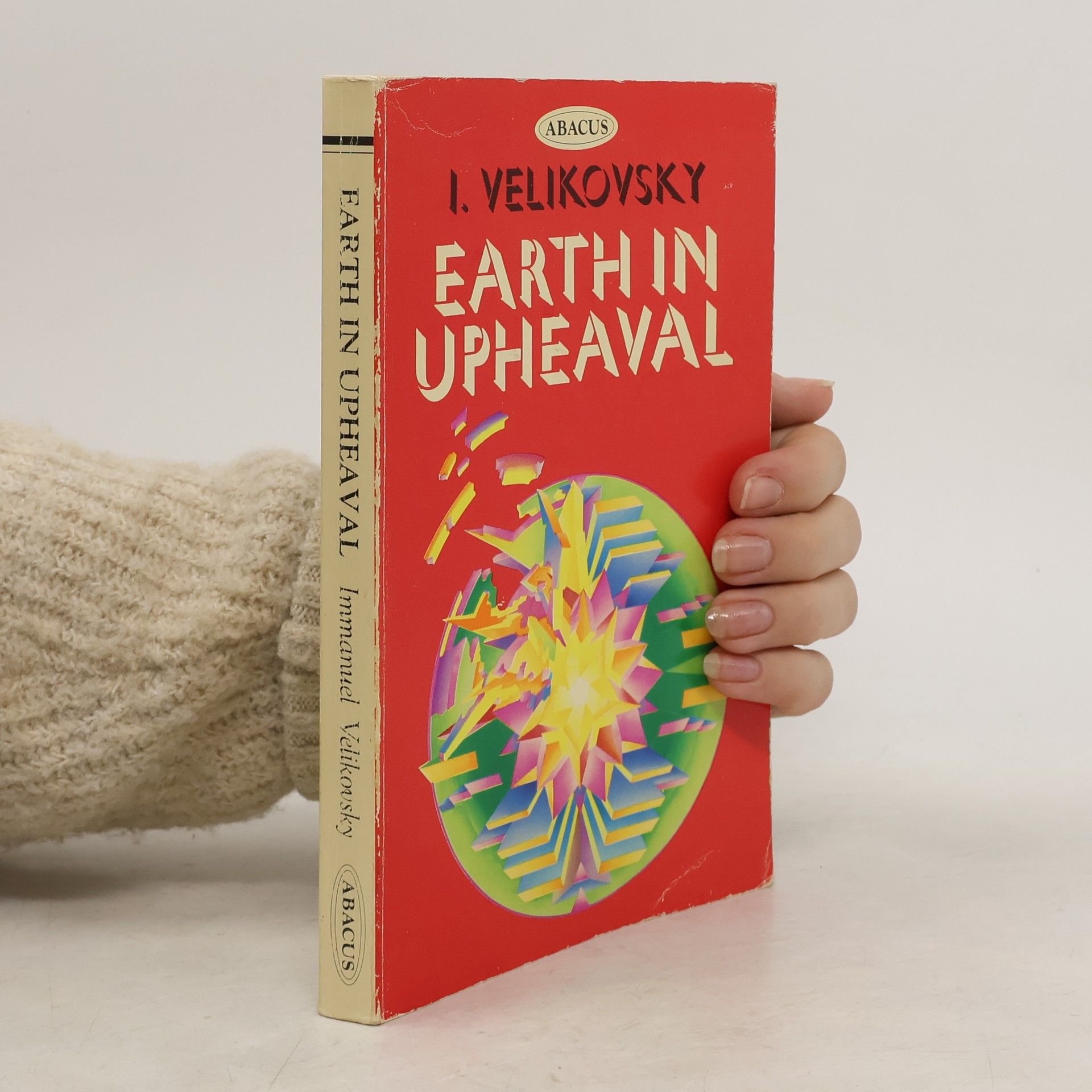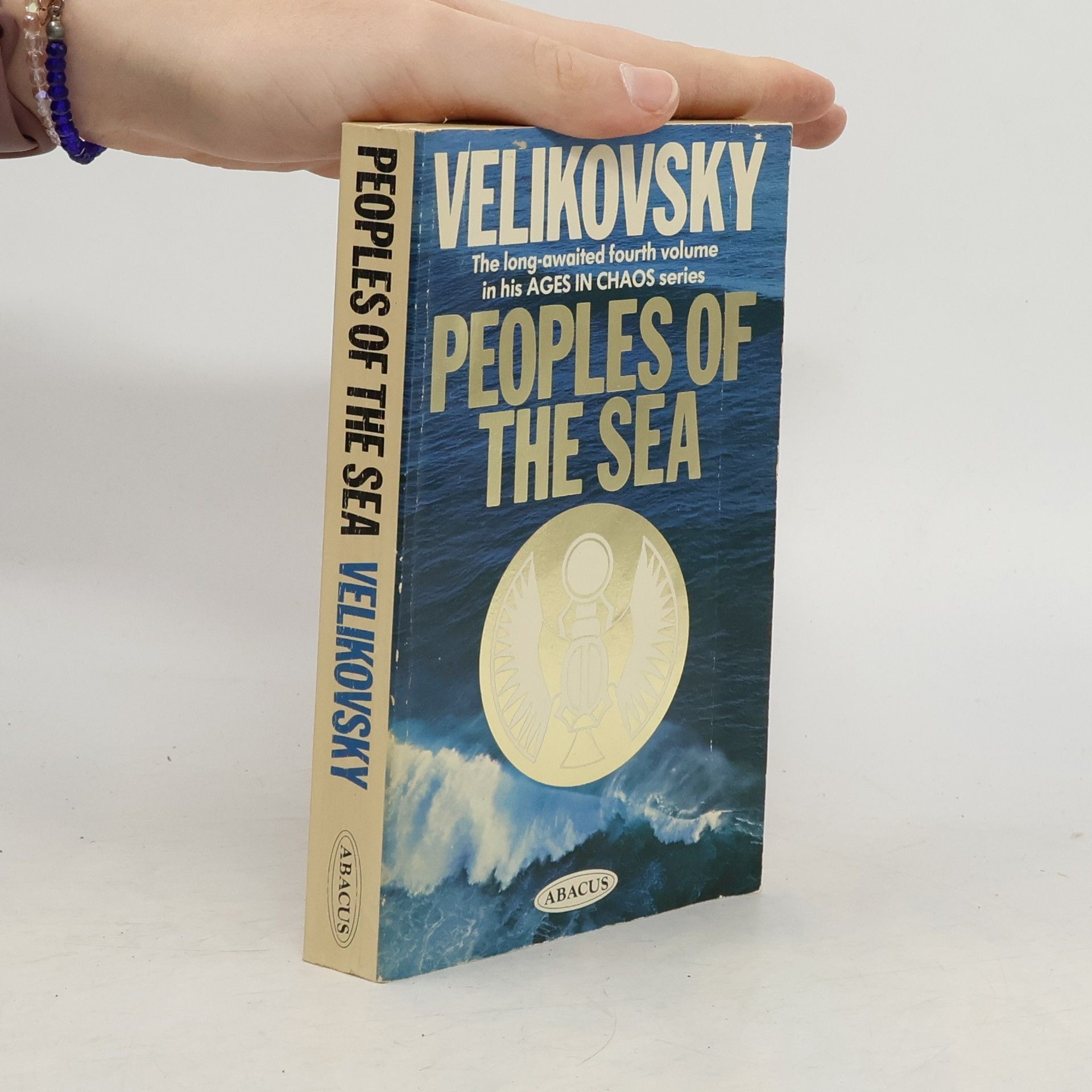Challenging the traditional view of the Dark Age of Greece, this book argues that the perceived gap in history, spanning approximately 500 years from 1250 to 750 BC, is a result of the influence of ancient Egyptian chronology rather than an actual decline. It posits that Classicists have capitulated to this external authority, leading to a misinterpretation of historical continuity. This work serves as a critical piece in the reconstruction of ancient history, as proposed by Immanuel Velikovsky, and invites readers to reconsider established timelines and narratives.
Immanuel Velikovsky Book order (chronological)
Immanuel Velikovsky was an independent scholar renowned for his controversial reinterpretations of ancient history. He utilized comparative mythology and ancient literary sources to posit that Earth experienced catastrophic celestial encounters in antiquity. Though his theories faced strong academic rejection, his books resonated widely with the public, sparking considerable debate.







In the Beginning
- 234 pages
- 9 hours of reading
This book is a sequel (or better: a prequel) to Immanuel Velikovsky's main work, the best-selling Worlds in Collision, in which he gave a detailed reconstruction of two global natural catastrophes based on information handed down by our ancestors. He mentioned there that, as part of his intensive research, he found numerous indications of even more catastrophes that took place earlier in the history of mankind. In the present book, the material collected by Velikovksy about this topic is presented to the public for the first time. His findings show just how turbulent the history of Earth and our planetary system was during the time of mankind and how little we actually know of all that today.
This is the first volume of the series Ages in Chaos, in which Immanuel Velikovsky undertakes a reconstruction of the history of antiquity. With utmost precision and the exciting style of a presentation that's typical for him he shows, beyond doubt, what nobody would consider possible: in the conventional history of Egypt - and therefore also of many neighboring cultures - a span of 600 years is described, which has never happened! This assertion is as unbelievable and outrageous as the assertions in Worlds in Collision or Earth in Upheaval. But Velikovsky takes us on a detailed and highly interesting journey through the - corrected - history and makes us a witness to how many question marks disappear, doubts vanish and corresponding facts from the entire Near East furnish a picture of overall conformity and correctness. You will meet an Egyptian eyewitness of the biblical plagues and the mysterious Queen of Sheba. You will find out to where her legendary visit led her. You will, moreover, learn surprising details about the temple of Solomon and learn who was behind its sacking. In the end you do not only wonder how conventional historiography has come into existence, but why it is still taught and published. Just as Velikovsky became the father of "neo-catastrophism" by Worlds in Collision, he became the father of "new chronology" by Ages in Chaos.
The book explores the enduring legacy of Oedipus, a central figure in Greek mythology known for his tragic fate. It delves into the profound impact of his story on literature and psychology, particularly through Freud's interpretation. The narrative examines how Oedipus's tale has resonated through the ages, influencing countless writers and shaping cultural discussions around fate and identity.
Focusing on the campaigns of Alexander the Great, this volume connects revised and classical chronologies, completing Velikovsky's reconstruction of ancient history. It is the second volume in terms of publication but serves as the final installment in the Ages in Chaos series. Each of its three independent parts contributes to its significance, making it accessible and engaging for readers, regardless of their familiarity with previous volumes.
Focusing on Ramses II, Immanuel Velikovsky challenges traditional views of ancient history by placing this iconic pharaoh in the 7th century B.C., rather than the 13th century. He reveals Ramses II's conflict with Nebuchadnezzar and shares intriguing personal insights from the latter's autobiography. Velikovsky critiques established historical narratives, arguing that concepts like the Hittite Empire are fabrications. Additionally, he explores the implications of radiocarbon dating on historical chronology, offering a fresh perspective on the Bronze and Iron Ages.
The book offers an insider's perspective on the controversy surrounding Immanuel Velikovsky's groundbreaking work, Worlds in Collision. Through authentic letters, readers witness the intense backlash from prominent scientists and universities, including boycotts and campaigns aimed at discrediting Velikovsky. His responses to these attacks, often suppressed by major publications, highlight the clash between scientific authority and innovative ideas. This exploration is particularly relevant today, shedding light on the dynamics of science and its societal impact.
Ages in Chaos II
- 304 pages
- 11 hours of reading
The battle of Kadesh-Carchemish -- Ramses II and Nebuchadnezzar in war and peace -- The tomb of King Ahiram -- The "forgotten empire" -- The autobiography of Nebuchadnezzar -- The "forgotten empire" : testimony of art -- Exodus or exile -- Epilogue : questions and answers -- Supplement : the pitfalls of radiocarbon dating
Ages in Chaos I
- 382 pages
- 14 hours of reading
This is the first volume of the series Ages in Chaos, in which Immanuel Velikovsky undertakes a reconstruction of the history of antiquity. With utmost precision and the exciting style of a presentation that's typical for him he shows, beyond doubt, what nobody would consider possible: in the conventional history of Egypt - and therefore also of many neighboring cultures - a span of 600 years is described, which has never happened! This assertion is as unbelievable and outrageous as the assertions in Worlds in Collision or Earth in Upheaval. But Velikovsky takes us on a detailed and highly interesting journey through the - corrected - history and makes us a witness to how many question marks disappear, doubts vanish and corresponding facts from the entire Near East furnish a picture of overall conformity and correctness. You will meet an Egyptian eyewitness of the biblical plagues and the mysterious Queen of Sheba. You will find out to where her legendary visit led her. You will, moreover, learn surprising details about the temple of Solomon and learn who was behind its sacking. In the end you do not only wonder how conventional historiography has come into existence, but why it is still taught and published. Just as Velikovsky became the father of "neo-catastrophism" by Worlds in Collision, he became the father of "new chronology" by Ages in Chaos.
Les grands bouleversements terrestres
- 344 pages
- 13 hours of reading
Par quelle force inouïe des millions d'animaux et d'êtres humains ont-ils été réduits en morceaux et agglutinés dans des caves ? Pourquoi le pôle Nord était-il auparavant tropical ? Est-il exact que les pôles ont été inversés et que l'axe terrestre a été changé ? Pourquoi retrouve-t-on en Espagne des rochers qui proviennent des Alpes ? Dans ce livre unique, la suite logique de Mondes en Collision le Dr Immanuel Velikovsky prouve point par point que notre Terre a vécu des bouleversements d'une force inouïe, thèse que les géologues commencent simplement à reconnaître aujourd'hui. Combattu au moment de sa parution, le temps a donné raison aux Grands Bouleversements Terrestres devenu, depuis, un grand classique. Copié, plagié, mais jamais égalé, ce livre du Dr Velikovsky est le premier à avoir réussi à raconter la véritable histoire de notre planète.
